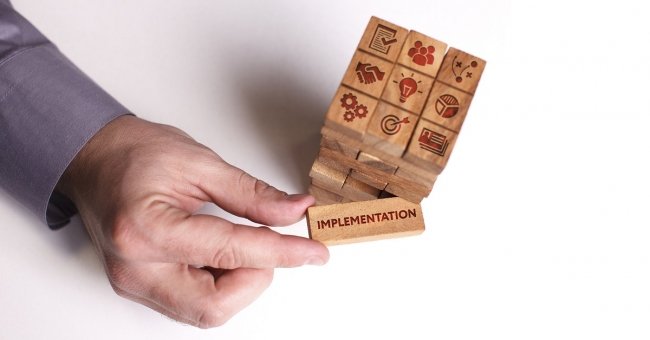The implementation of Industry 4.0 though remains a challenge. The decision makers are scratching their heads as to which approach should be pursued, what role IT- and especially the MES - would play, and whether or not their existing setup both in IT and in operations will be able to provide the right platform to implement Industry 4.0.
DECENTRALIZED AND DYNAMIC MARKETPLACE
So, first of all, Industry 4.0 ushers in a completely new kind of manufacturing operation, where lots of production move through a decentralized and dynamic marketplace, where process equipment bid to perform an operation. Everything which pertains to the manufacturing process and even beyond the physical boundaries of a plant or a fab, is all connected through smart sensors, actuators, the internet etc. There is a ton of information being generated every second, where decisions related to how a product will move do not depend so much on the traditionally defined workflow, rather on dynamically established most profitable routes through the entire process.
Complex manufacturing operations would become even more complex as lot sizes reduce and increase the pressures on cost and margins, also necessitating that customization be performed while maintaining highest quality and lowest possible lead times. Industry 4.0 also demands for smart innovation, where the R&D function needs to perform much faster and speed to market might just become the difference between being a market leader or losing out to a faster, leaner more organized competitor.
At the heart of any Industry 4.0 enabled operation would lie the MES. But not just any MES, the application should be capable of handling the challenges posed by Industry 4.0 and should be able to orchestrate the whole operation. Unfortunately most current MES applications wouldn’t stand a chance if implemented in the complex, data rich and dynamic environments of a modern fully automated fab.
NEW MES: BACKBONE OF INDUSTRY 4.0
A truly Industry 4.0 enabled MES needs to have certain key capabilities if it were to be classified as ready for the modern manufacturing challenges.
- MES needs to be ready to provide connectivity to and through it, by being Iot and IIoT enabled,
- It needs to provide mobile connectivity, where the GUI is intuitive, flexible, configurable and above all adaptable to various production flows and equipment,
- The MES would no longer be an on premise installation, rather it would be cloud based and capable of receiving, analyzing and concerting copious amounts of data and convert it into actionable information through the implementation of advanced analytics tools.
- The Industry 4.0 MES would also allow decentralized marketplaces to exist across the operation, where even though the application itself is centralized in a way, it accommodates for decentralized and dynamic flow, through its IIoT connect,
- Finally, the new MES would also need to bring about vertical integration right from automation or individual CPPS to the enterprise level, so that there can be end-to-end connectivity across the entire organization,
- Similarly, the MES would also need to ensure horizontal integration where smart equipment, tools, products, raw materials, carriers and supply chain partners are connected in such a way that an event triggered anywhere in the plant, may then be visible through and across the value chain.

